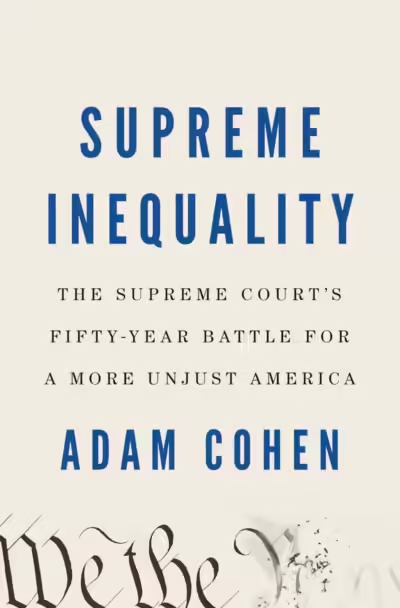articles
China Elevator Stories
Supreme Courts, Supreme Inequality
Many expect Supreme Courts to deliver just verdicts and are shocked when they don’t.
xx/xx/2024

Ruth Silbermayr
Author

I was recently looking for books talking about unjust rulings. I have experienced extreme discrimination at courts of all instances in Austria and found a book about the Supreme Court in the US, called “Supreme Inequality: The Supreme Court’s Fifty-Year Battle for a More Unjust America” by Adam Cohen.
In one case that reminded me of the outcome of my custody lawsuit, he states:
“It seems that the Court’s conservative majority has been twisting the law to rule against employment discrimination victims, there is a simple reason: it has. The Court’s battle against victims of on-the-job-discrimination is, however, part of a much larger war. For five decades, the Court has, with striking regularity, sided with the rich and powerful against the poor and weak, in virtually every area of the law.”
When I read one of the rulings in my custody case, I was shocked at how the judges had twisted words, ignored the evidence, and ruled in favor of a father who had hidden our children at an unknown address in China. He had tried to separate them from me permanently, preventing any contact for 3.5 years.
Adam Cohen writes about cases where the rulings were unfair for the innocent party:
“As shattering as decisions like these have been for individuals, in the aggregate they add up to something much larger: a systematic rewriting of society’s rules to favor those at the top and disadvantage those in the middle and at the bottom. (…)
According to Cohen, it hasn’t always been this way:
It didn’t have to be this way, and there was a time when it was not. On October 5, 1953, Governor Earl Warren of California was sworn in as chief justice, and his arrival launched a progressive legal revolution. In his first year in office, Warren led the Court to a unanimous ruling in Brown v. Board of Education, which held segregated schools unconstitutional. (…)
By 1968, Richard Nixon was campaigning for president by running against the Warren Court, which he said in a Reader’s Digest article had ‘weakened law and encouraged criminals’. (…)
If Nixon became president, it would pose a direct threat to everything Warren had built. Nixon was promising to appoint conservative justices, and Warren, who was seventy-seven, was afraid one of these could be the next chief justice, who would work to bring the Warren Court’s accomplishments crashing down.”
He worked on making sure the Court would stay on its progressive path by various means, but according to Cohen,
“Nixon won the presidential election in the fall of 1968, and when Warren retired, in mid-1969, Nixon replaced him with a conservative, Warren Burger. (…)
One academic study that examined the Court’s decisions from 1938 to 2010 concluded that 2010 was the most conservative year in that entire seventy-two-year period. The Court has moved even further to the right since 2010. Charles Fried, a conservative Harvard law professor who served in the Reagon Justice Department, said in a 2018 Harvard Law Review essay entitled: ‘Not Conservative’ that the Court’s extremism can be seen not only in its positions, but in the reckless ways it has arrived at them.”
For me, I have only learned about how Austrian courts work and that they are pretty conservative and patriarchal institutions after I experienced having to go to court.
Since then, I have had many instances where I met with judges only to find out that they were discriminating against women and ruled in favor of men, even when a man was not innocent, but quite blatantly obvious guilty.
Have you ever been disappointed with the courts?